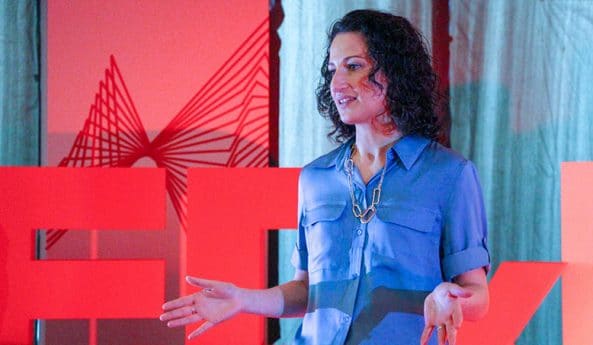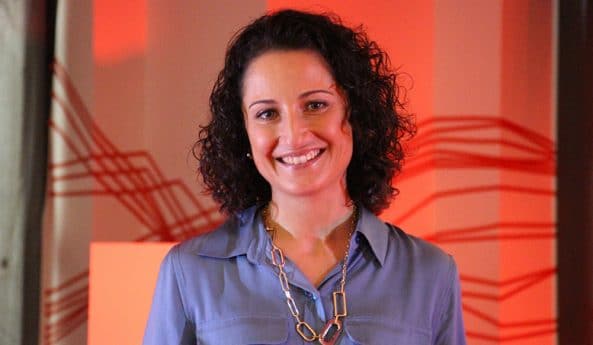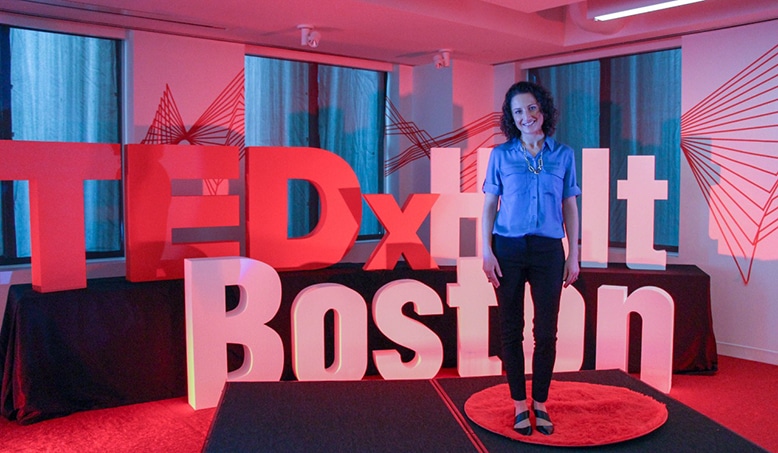On May 4 Hult Boston hosted its first ever TEDxHultBoston event. Organized by Hult students under the banner “Global Experiences”, the goal was to invite speakers who would not only educate but also inspire, and expose new perspectives on how to approach situations on a daily basis. Of the 10+ speakers on the day, it was Dr. Delvina Miremadi-Baldino, founder and Chief Resilience Officer of Realize Your Resilience LLC, who inspired me to change the way I think in order to live the best possible life.
Before presenting “the ABC model” – more to come on this – Dr. Miremadi-Baldino talked about how negative thoughts determine our reality. The most striking of many jaw-dropping facts she shared is that 80% of a person’s thoughts are negative, and 95% of these thoughts are repetitive! The human brain is wired to pay more attention to negative experiences; in fact, negative experiences are easier to recall than positive ones. Sadly, this is the ONE thing all human beings have in common, regardless of where you are from, your age, gender or education. However, we also have the power to change it! By becoming resilient we have the chance to be our best when things are at their worst – all it takes is a quick mental shift to become compassionate and grateful with yourself.


Easy as A, B, C
- A. Grow: Everyday write down three things in which you were successful.
- B. Succeed: Learn to fail forwards and succeed from that failure.
- C. Thrive: Take away the power of thoughts by greeting them with compassion.
It took me a long time to write this blog because I not only wanted to share what was said, but actually put it into practice in my daily life. The day after the talk I immediately started implementing the ABC model in my life. The first time I sat down to think about three things I was successful at I could not think of anything – just as Dr. Miremadi-Baldino said would happen. Even though I had just made it to the Hult Business Challenge Entrepreneurship Track finals; I had gotten married a month previous; and my masters is almost complete, I sat for one hour just recalling everything that had gone wrong.
I had stepped in some mess on my way home from walking the dogs, I was late to a meeting because of it, so I was overwhelmed with negative thoughts: “You are so stupid!”, “How could you do this!”, “If you could have just stayed focused this wouldn’t have happened!”. You know how it goes…
Frustrated, disappointed, but eager to change how my brain works, I was finally able to start listing things in which I had succeeded throughout my day. For the first few days I kept it small – things like I cleaned my apartment before heading out, which meant waking up earlier. By day 10 I was able to do it faster and concentrate on bigger things – for example, “Today I got a job interview!”


Confronting the F word
For me, learning how to fail forward was the most challenging part. Failure is terrible – at least, that’s what I had heard my whole life. Michael Jordan once said:
“I’ve missed more than 9000 shots in my career. I’ve lost almost 300 games. 26 times, I’ve been trusted to take the game-winning shot and missed. I’ve failed over and over and over again in my life. And that is why I succeed.”
It starts with you
Finally, in order to thrive at being resilient I needed to cultivate some self-compassion. During TEDx Dr.Miremadi-Baldino gave the perfect example of how to take away the power of thoughts and greet them with compassion. She said, “What would you say to a child you love? What would you say to them if the same thing had happened to them?”. Putting Dr. Miremadi-Baldino´s advice into practice was actually pretty straightforward. For example, let’s go back to the dog-walking accident…What if this had happen to my niece instead of me? I wouldn’t have been anywhere near as harsh on her as I was on myself; I probably would have told her that everything was okay, that it was just an accident, that we would clean it, and that would have been the end of it.
Sounds easy, right? So why couldn’t I do it that day? The thing is, to change our brain and defeat negative thoughts we need to be resilient ALL the time, not just for a couple of minutes at the beginning or end of our day. We need to have the ability to STOP and make that mental shift as fast as possible. It’s a continuous and continual process. We need to treat ourselves with compassion and gratitude all the time. Remember, YOU hold the power to be resilient!
Delvina Miremadi-Baldino
Director of Education and Programs, Life Advantages Chief Resilience Officer, Realize Your Resilience LLC
Dr. Miremadi-Baldino is the founder and Chief Resilience Officer of Realize Your Resilience LLC and works as the Director of Research and Program Development at Life Advantages, LLC. Dr. Miremadi-Baldino received her Ed.M. from Harvard University and completed her doctorate in Educational Leadership at Simmons College where she specialized in student resilience. Dr. Miremadi-Baldino is a Certified Applied Positive Psychology Practitioner (CAPP) and a Certified Coach. Her extensive training in Education and Psychology places her at the forefront of developing innovative tools that foster resilience and help individuals live more flourishing lives.
Want to learn about your own strengths and weaknesses? All Hult programs are designed to ensure you graduate with a deep understanding of the world, the future, and yourself. Download a brochure now to join us on campus.


